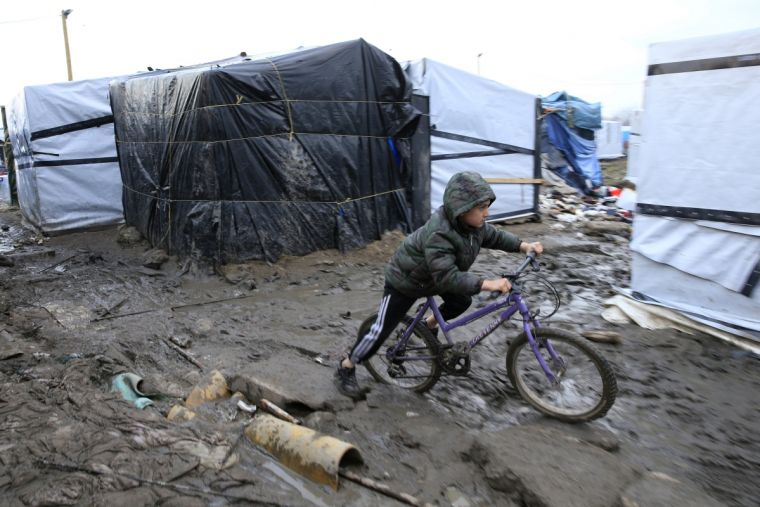Rape, prostitution and forced labour: Life for children in French refugee camps

Sexual violence and forced prostitution is a constant threat for children in refugee camps in Northern France, and some young women exchange sex for the promise of passage to the UK, a new report has found.
Published today by Unicef France and Unicef UK, the report sheds light on life for children between the ages of 11-17 living in seven camps along the coast of the English Channel, including Calais and Dunkirk.
Researchers found that sexual exploitation is a "constant threat", including the rape of boys, and the rape and forced prostitution of girls.
Some young women had exchanged "sexual services" with traffickers who promised to help them get to Britain, and traffickers are now charging up to £5,500 per person to cross the Channel.
Children are forced to pay an "entry fee" before they are even allowed to live in the camps. Unaccompanied minors, 500 of whom are living in the French camps, are forced into labour if they can't afford to pay.
"Immediate action by the UK Government could stop children falling into the hands of traffickers and show it's serious about its recent commitments to refugee children, said Lily Caprani, Unicef UK deputy executive director.
"The Prime Minister says unaccompanied children should be brought to the UK if they have family here, yet these children's cases are moving far too slowly. These camps are no place for a child – we know there are at least 157 children in Calais with the legal right to be with their family in the UK.
"The longer these children have to wait, the more desperate they may become and the more likely they are to risk their lives fleeing the appalling conditions of the camps to reach their families."
Unicef is campaigning to have these 157 children reunited with their families in Britain by the start of the school year in September.
Home secretary Teresa May pledged last month to speed up the process, but "people on the ground in Calais tell us nothing has changed and these children are still waiting, facing another uncertain night in a dangerous camp they repeatedly describe as a 'living hell'," Unicef said earlier this week.
It also published statistics revealing that 94 per cent of the 4,760 children who made the journey from North Africa to Italy beween January and April this year were unaccompanied.











